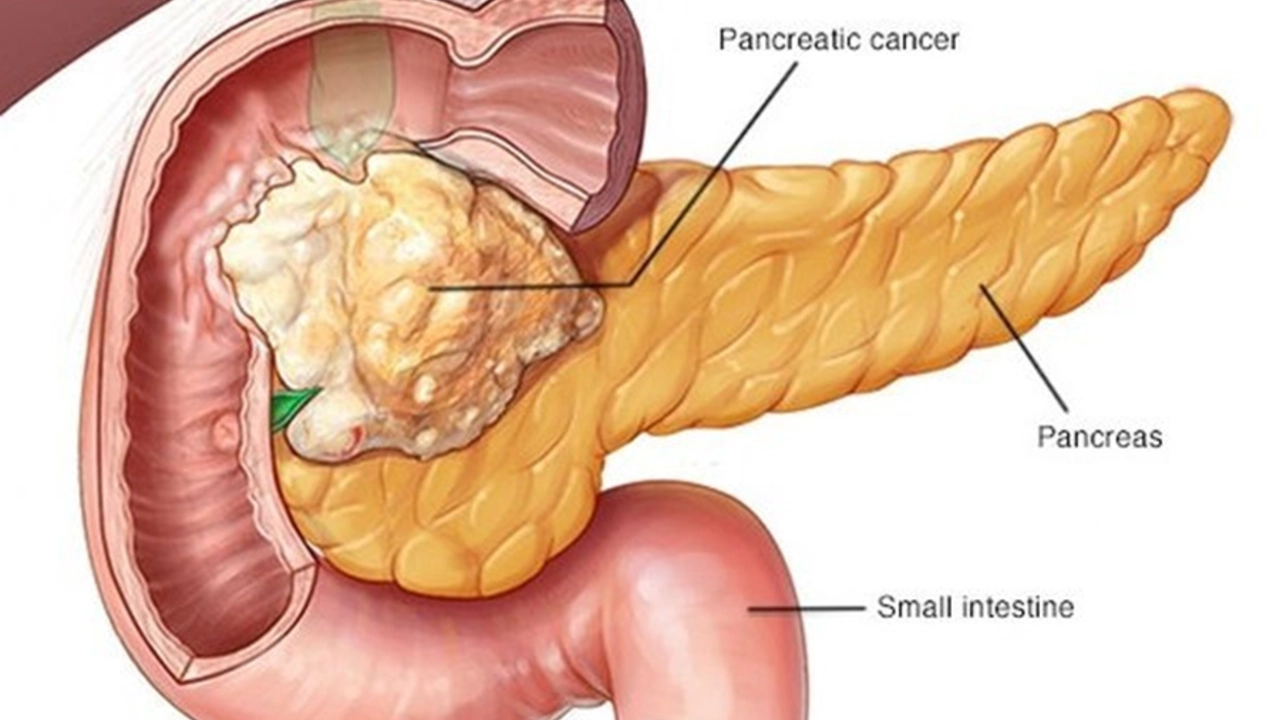Pancreatic Cancer: What You Need to Know Right Now
If someone mentions pancreatic cancer, the first thing that pops into many minds is fear. That’s understandable – it’s a tough disease with low survival rates. But knowing the basics can help you spot problems early and make smarter health choices.
Common Symptoms & Warning Signs
Pancreas trouble doesn’t shout its presence; it usually whispers. The most frequent clues are vague abdominal pain that drifts toward the back, unexplained weight loss, and a new‑onset jaundice (yellow skin or eyes). Some people feel unusually full after just a few bites, while others notice changes in stool color – pale or greasy stools can mean the pancreas isn’t digesting fat properly.
Because these signs overlap with many harmless conditions, they’re often missed. If you have any combination of persistent pain, appetite loss, or jaundice that lasts more than a couple of weeks, it’s worth getting checked out. Early imaging (like an abdominal CT) can catch tumors before they spread.
Treatment Options and What’s New
When doctors confirm pancreatic cancer, treatment plans hinge on the tumor stage. For early‑stage disease that hasn’t moved beyond the pancreas, surgery—usually a Whipple procedure—is the gold standard. It removes part of the pancreas, duodenum, gallbladder and sometimes nearby tissue.
If the tumor is larger or has spread a bit, chemotherapy steps in. Regimens such as FOLFIRINOX or gemcitabine plus nab‑paclitaxel are common because they can shrink tumors enough to make surgery possible later on. Radiation therapy often pairs with chemo to target stubborn spots.
Research is buzzing with new approaches. Immunotherapy, which teaches the body’s own immune cells to attack cancer, shows promise in small trials when combined with existing drugs. Targeted therapies that focus on specific genetic mutations (like BRCA or KRAS) are also entering clinical practice, offering personalized options for a subset of patients.
Supportive care matters just as much as aggressive treatment. Managing pain, nutritional support, and mental health counseling help maintain quality of life throughout the journey.
The bottom line? Pancreatic cancer is serious, but understanding symptoms, getting prompt scans and knowing your treatment choices can improve chances. Talk to your doctor if anything feels off—you’re more likely to catch problems early when you act fast.

Pancreatic Cancer and Spirituality: Finding Strength and Comfort
Finnegan O'Sullivan Jul 21 14In my latest blog post, I delve into the deep connection between pancreatic cancer and spirituality. I explore how spirituality often provides solace and strength to those battling this daunting disease. The blog discusses various spiritual practices like meditation, prayer, and mindfulness that can help in coping with the physical and emotional distress associated with pancreatic cancer. I also touch upon the role of spiritual support from loved ones and the medical community. It's a profound exploration of the power of the spirit in the face of life's toughest challenges.
More Detail